Law | Interview | Steven “Ace” Acker | “Discovered and signed to MCA Records by Roger Daltrey of the Who”
LAW was originally a trio consisting of Steve Lawrence (drums, vocals), Steven “Ace” Acker (guitar, vocals) and Mickey Williamson (bass, vocals). This lineup didn’t last long and Williamson left the group and was replaced by Ronnie Lee Cunningham and John McIver.
Their style changed and they incorporated many ideas from soul and funk. The band managed to release three albums and had many lineup changes in the period between 1975-77. The band was supported by Roger Daltrey via his Goldhawke Productions.
What was it like to grow up in Youngstown, Ohio? What were some of the clubs you attend to see new bands?
Steven “Ace” Acker: I grew up in Warren, Ohio, 14 miles northwest of Youngstown. Both towns are part of The Mahoning Valley. While each had its own peculiarities and sub-cultures, they were essentially the same. Both were industrial steel towns midway between Cleveland and Pittsburgh, and both were hotbeds of Mafia activities. Youngstown was known in the 50s and 60s as “Murder Town USA.” The Mob kept the violence between themselves, mostly.
There was full employment, then, and the drinking age was 18. A large portion of the population were Italian or East European Slovak immigrants. They had money, they loved to party, they loved rock and roll, and they loved their bands.
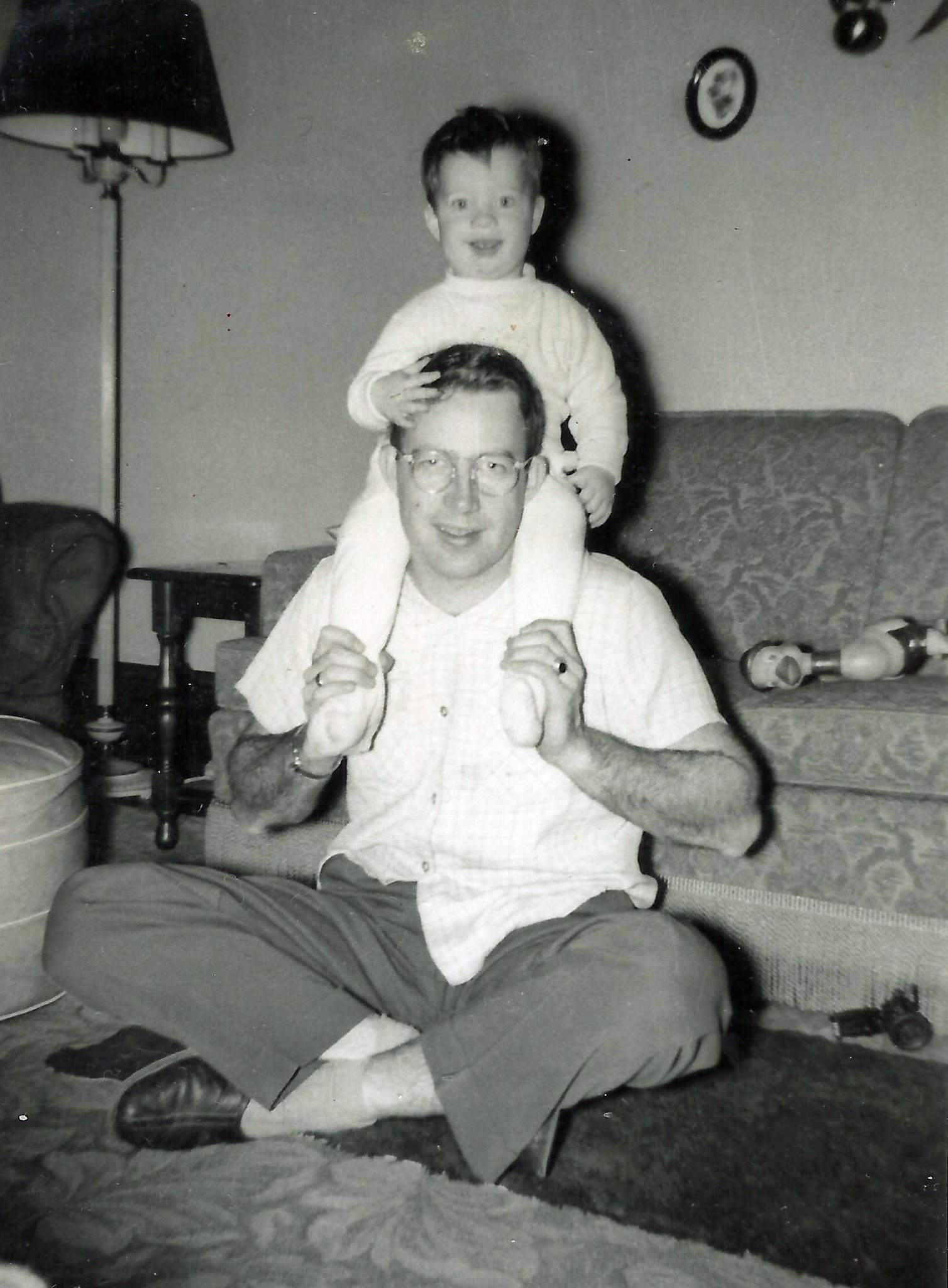
Teen clubs abounded. Church basements. Armories. Biker parties. Far too many venues to enumerate or name. By the time I was 16, I was gigging 4 or 5 nights a week in the summer and holidays, and every weekend night during the school year. Because of this, we musicians were able to develop and hone our music and our stagecraft to a much greater degree than young musicians can today. I left home at the age of 17 and moved to Youngstown on my own because my parents offered me an ultimatum: stay home and finish school, or leave. I left, and that was the beginning of my rise to prominence.
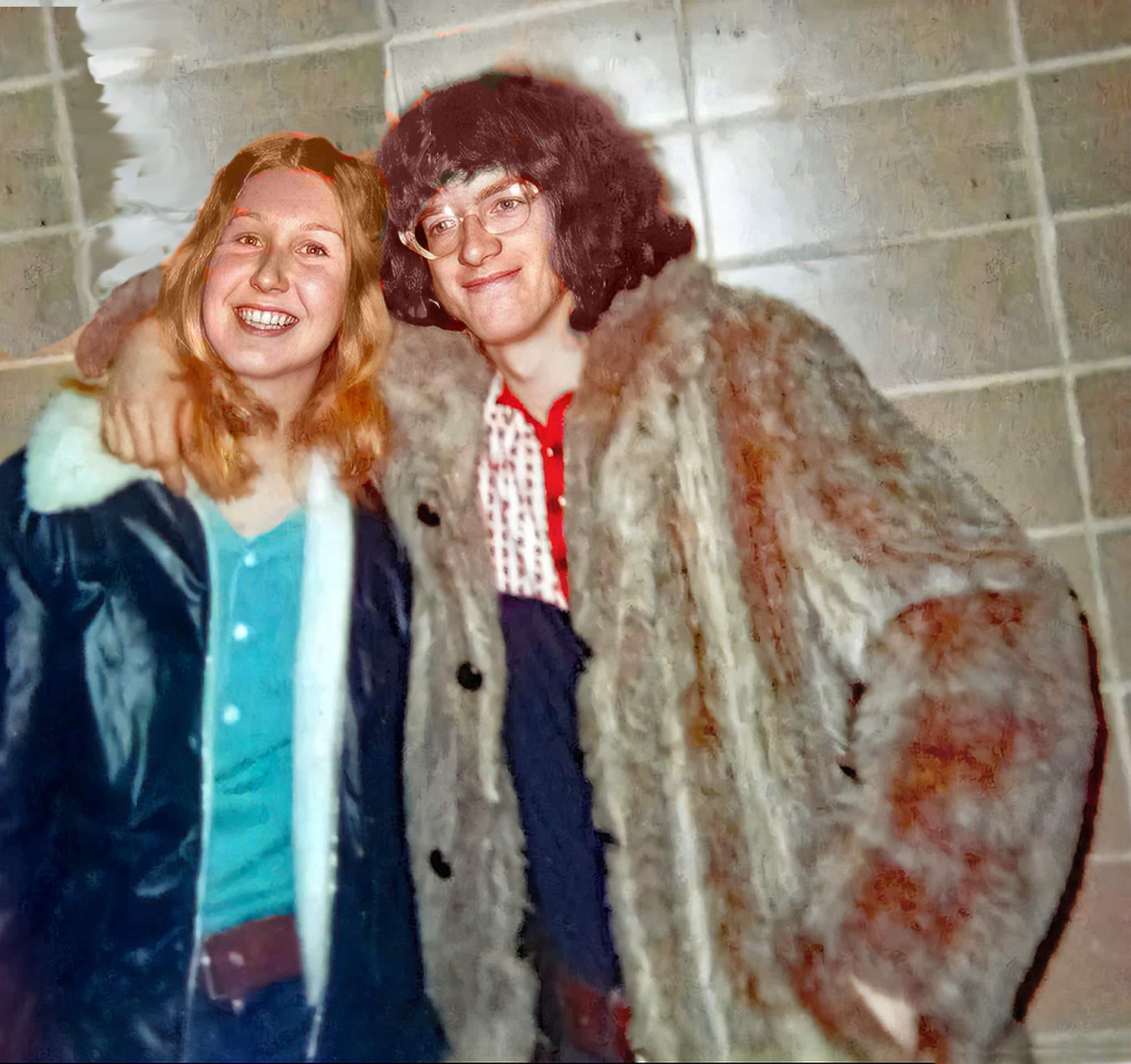
What would you say were some of the most influential records that you got when you were young?
It started with Elvis Presley in 1956. I wish I still had those early 45s! Then came Chuck Berry, then The Beatles. Elvis Presley was the Big Bang. The Beatles blew the world’s doors off. Virtually every musician of my generation I know cites their first appearance on the Ed Sullivan Show as the moment they became serious musicians.
Then came the Rolling Stones and the British Invasion, the Beach Boys, Cream and the Jimi Hendrix Experience. We guitar players often cite John Mayall’s Beano Album with Eric Clapton as a major influence.
You played in several local bands, what were the names of those? Among them was a band featuring Myron Grombacher (Pat Benatar fame). Did any of the bands record anything or maybe you have some recordings in your archives?
That band, with Myron, was called Hard Willow. It was his first band ever and it was a transitional band for both of us. We did not record. He went on to join the Pat Benatar band in 1979 and played with Pat for 30 years. I then played with a 10-piece horn band called My Uncle’s Army Buddies. Our grand finale was a Chicago song, ’25 or 6 to 4′. I would straddle my guitar on the floor while playing the last solo and rip the strings off of it! Audiences loved it, but I did not carry that over into LAW.
LAW formed in February 1971 by the trio of Steve Lawrence, Mickey Williamson and you. Can you elaborate how you got in touch and what led you to start this band?
In January 1971, the Army Buddies had broken up and I had moved back home from Youngstown to my parents’ house in Warren. One day, I got a call from Y-Town bass player Mickey Williamson, who I knew only by reputation. He had a three-piece band called Senior Runner and the Half-Moons, and they were looking to replace the guitar player. We got together the next day at a hip Youngstown club called The Green, where I met Mickey and drummer Steve Lawrence. They were both five years older than me. We started jamming and the magic was almost instantaneous. We knew—this was it. “I’m in,” I told them, “But that name has got to go.” Usually, coming up with a band name was a lengthy process. Mickey and Steve moaned and groaned a little about that. But the club owner was there, and he said, “Steve Lawrence—L. Steven Acker—A. Mickey Williamson—W.” “You are L.A.W.” And so, we were.
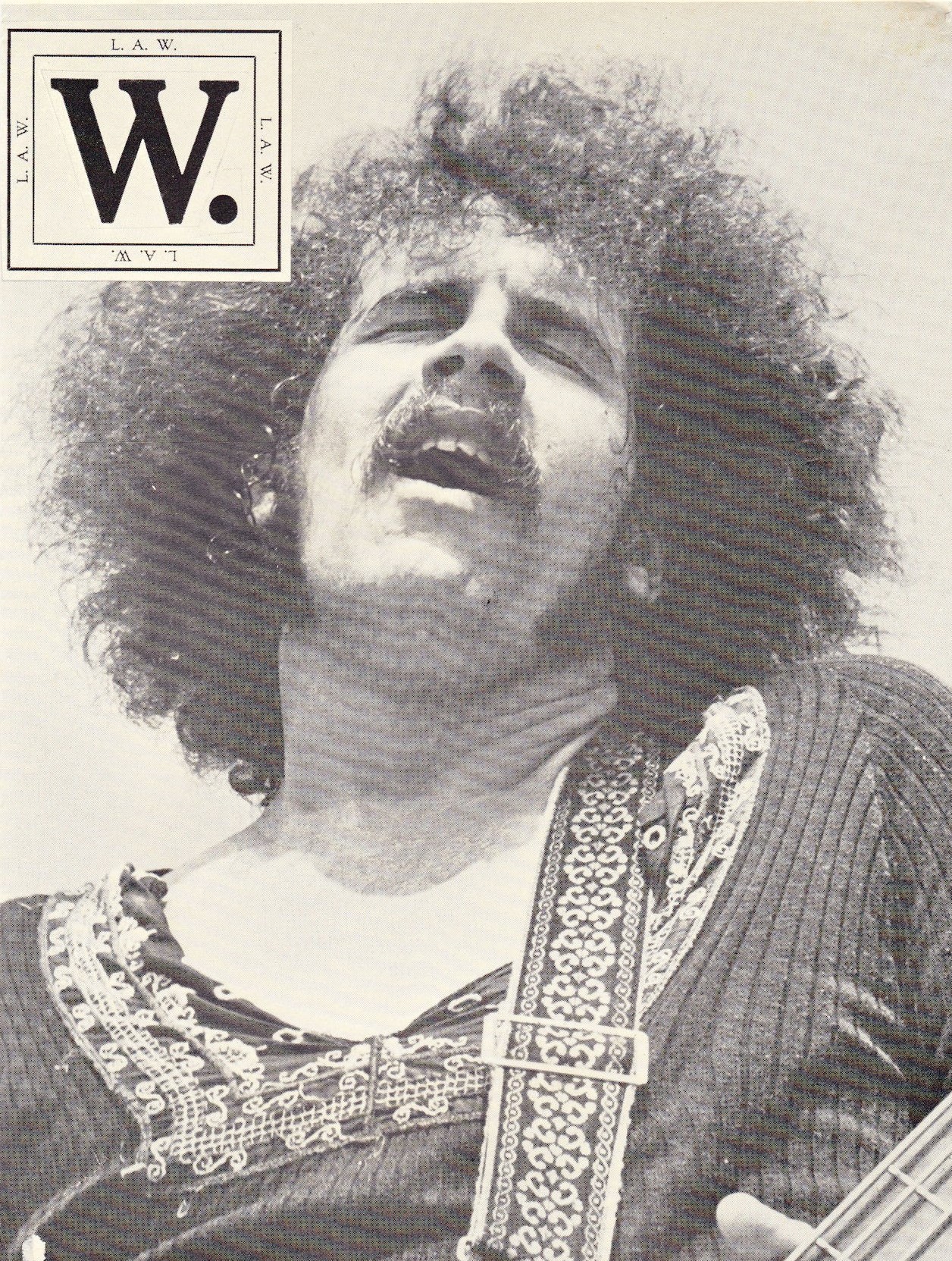
Tell me about going to the legendary Peppermint Productions in ‘72 to record the band’s first six songs. Can you tell me about writing and recording that material and what those studio sessions were like for you guys?
L.A.W. was a 60-40 original band from the git-go. I had been accumulating material, while Mickey and Steve had already forged an original style that I fit right into. One of the first songs I remember us playing was ‘Day Tripper,’ but theirs was a hard rock arrangement in half time. Two originals that came early on were our perennial opener, and out closer, ‘Backbeat Boogie’. Both are on the ‘Peppermint’ EP. These were my first recording sessions.
They were demo sessions only; they have never been commercially available until now. I had been heavily influenced by Jimi Hendrix and it shows in ‘Long Time’. We recorded ‘Boogie’ live in the studio with an audience of 30 friends. It captures our live energy quite well. L.A.W. quickly became known as a “Boogie Band.” We were a huge regional hit almost immediately. It was enormously exciting.

What were the circumstances of getting a deal on the GRC label?
It was Spring 1975. LAW had acquired a sizable following in Atlanta. We’d been playing all the hotspots for years—Alex Cooley’s Electric Ballroom, Richard’s, The Fox Theater, Funnochio’s, Grant’s Lounge in Macon. They called Atlanta at that time “Hot ‘Lanta,” and throughout the early 70’s Atlanta was burnin’, indeed. It was time for LAW to make a record. Warner Brothers and Capitol Records had already passed on the band, so when an independent Atlanta label called GRC (General Recording Corporation) offered us a three-album deal that included $35,000 tour support money to promote the first album, we jumped at it.
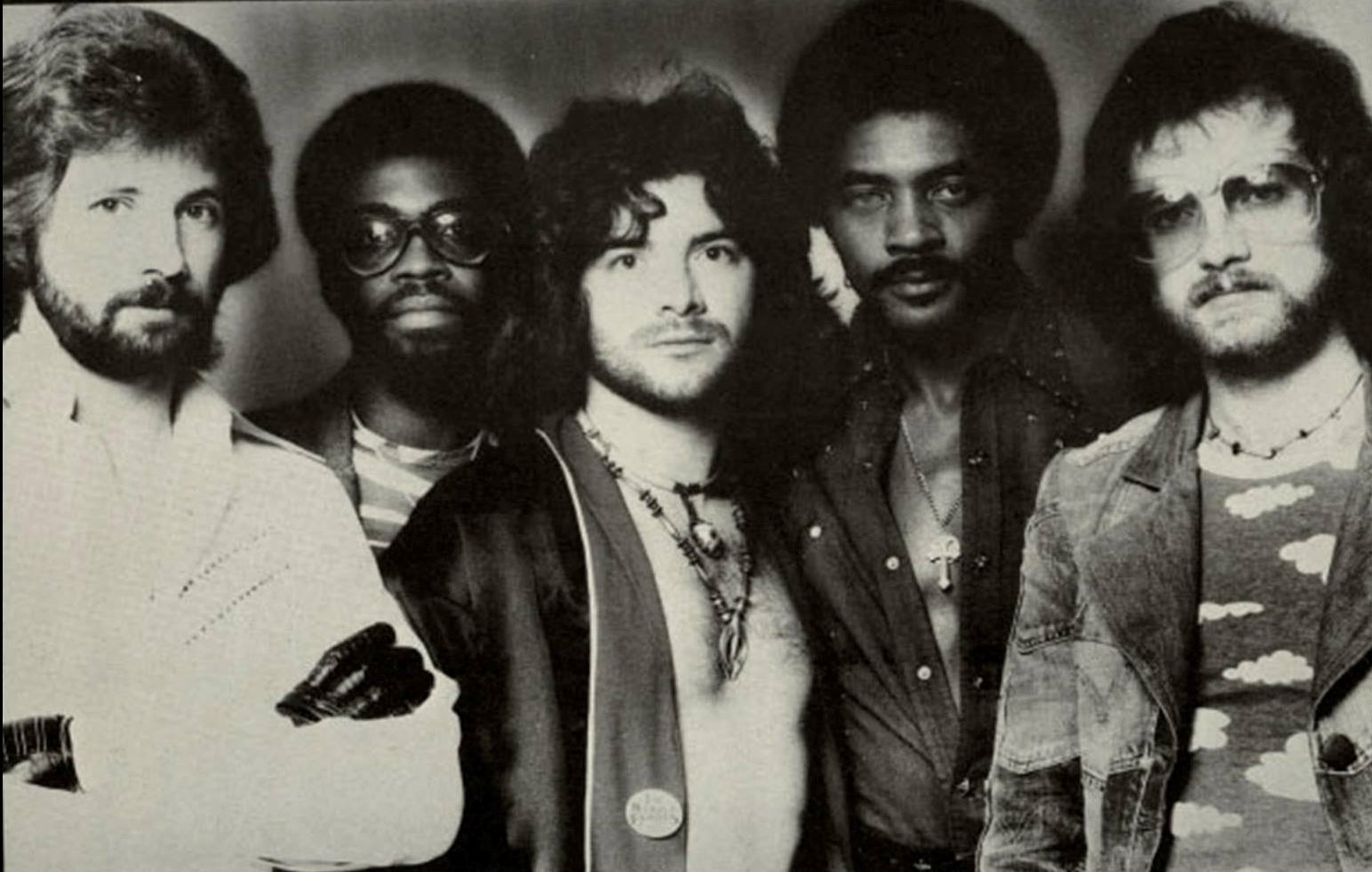
We’d heard rumors about the label’s owner, Michael Thevis, but our ambition had rendered us deaf, dumb, and blind, I suppose. Thevis was spending money like he was picking it off trees, hiring top label executives from New York and L.A. to run the company, building a state-of-the-art studio in Atlanta he called The Sound Pit, throwing money at his artists as if GRC was MCA. He lived in an ostentatious mansion called Lion’s Gate (which baseball great Dave Justice later purchased for his new bride, Halle Berry). He was top-of-the-line all the way. We didn’t really know—or maybe we didn’t care—that all that money had come from Thevis’ Empire of Porn. Thevis was a gangster, pure and simple. But he was our gangster. When he hosted a party for the band at Lion’s Gate, he had cold Coors Beer flown in from Colorado (this was long before the modern era of imported beer and micro-breweries). That was a true symbol of affluence back then. Quite impressive.
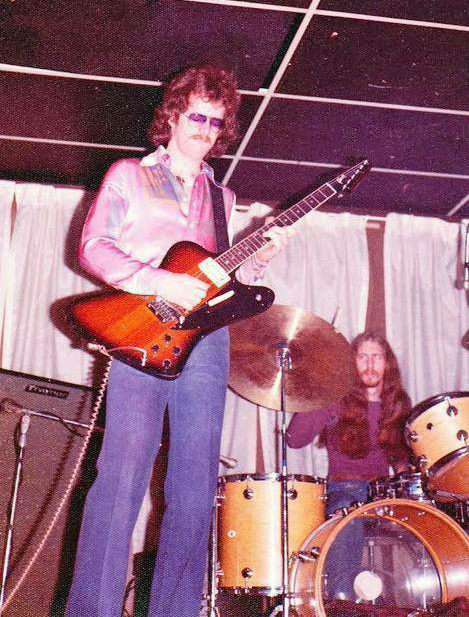
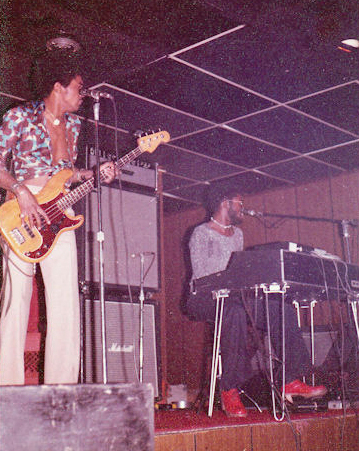
What are some of the strongest memories from writing, recording, and releasing your debut album?
Our manager secured the production services of Ron and Howard Albert. The Howard Brothers had been serving as chief engineers at Criteria, where they engineered Derek and the Dominos’ ‘Layla,’ among other now-classic albums by Crosby, Stills, Nash & Young and others.
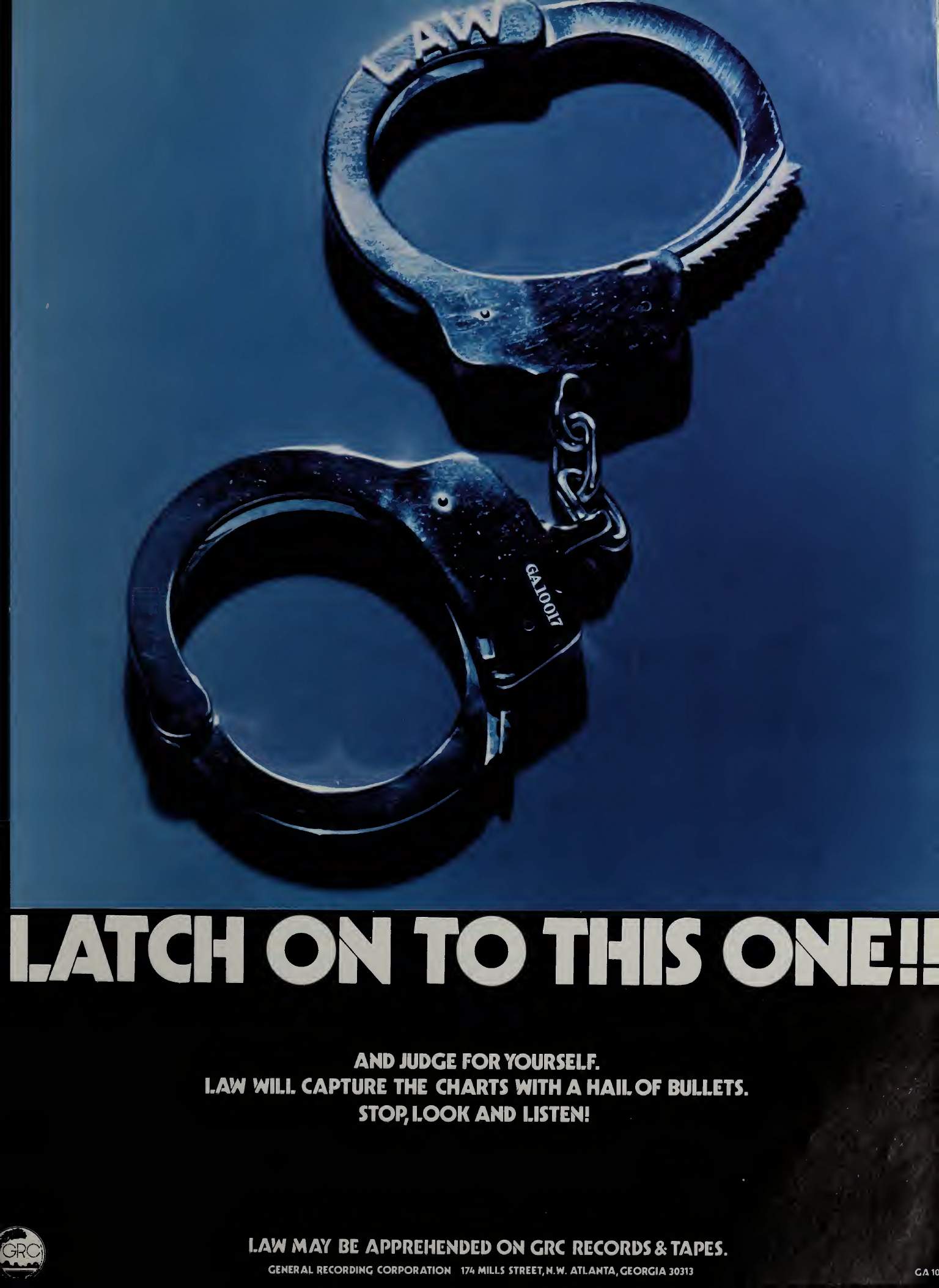
But as producers, they left much to be desired. I remember Howard complaining to me how sick he was of guitars; all those guitar tracks on Layla had soured him on the instrument. So rather than produce LAW as the hard-rockin’ guitar band we were, they added the Memphis Horns and a string section to many of our tracks. The album sounded not at all like LAW on stage. Still, as I look back on it and listen to some of those tracks, I am proud that the greatest horn section in the history of modern music added its touch to our music.
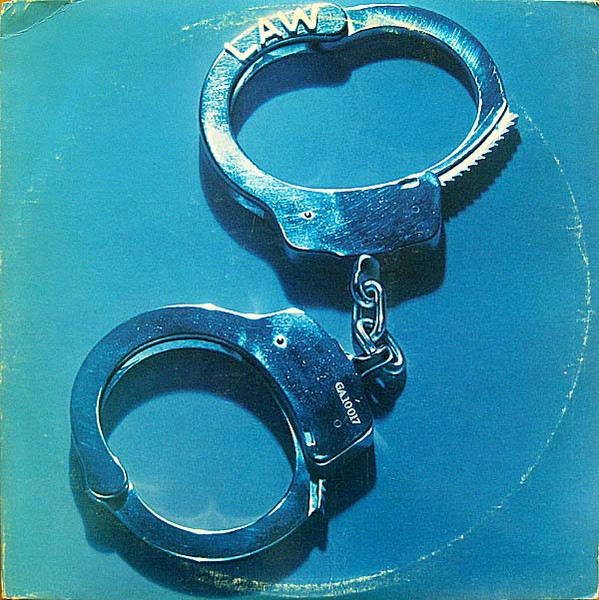
The arrangements are impeccable. Just as our album was to be released, Readers’ Digest published a cover story about Thevis, labeling him “The Porno King.” Federal Marshals arrested Thevis on a variety of federal charges and threw him in Lexington Federal Prison to await trial. Thevis arranged to have LAW perform a concert at the prison in August 1975. It was a surreal event, the first and only time I ever saw the inside of a prison.
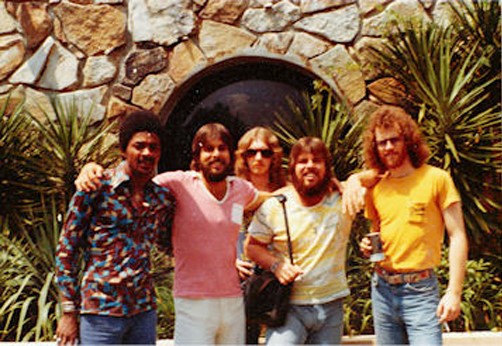
We played outdoors on a beautiful, sunny afternoon, with Thevis smiling and bobbing his head to the music at a picnic table in front of us. Unfortunately, that was the end of his interest in LAW and GRC Records. It’s a long, sordid story. Suffice it to say that Thevis eventually died in prison serving a life sentence for arson and murder.
“By Summer 1976, we recorded our first album for MCA, followed by a multi-city tour opening for The Who on the East Coast leg of their tour”
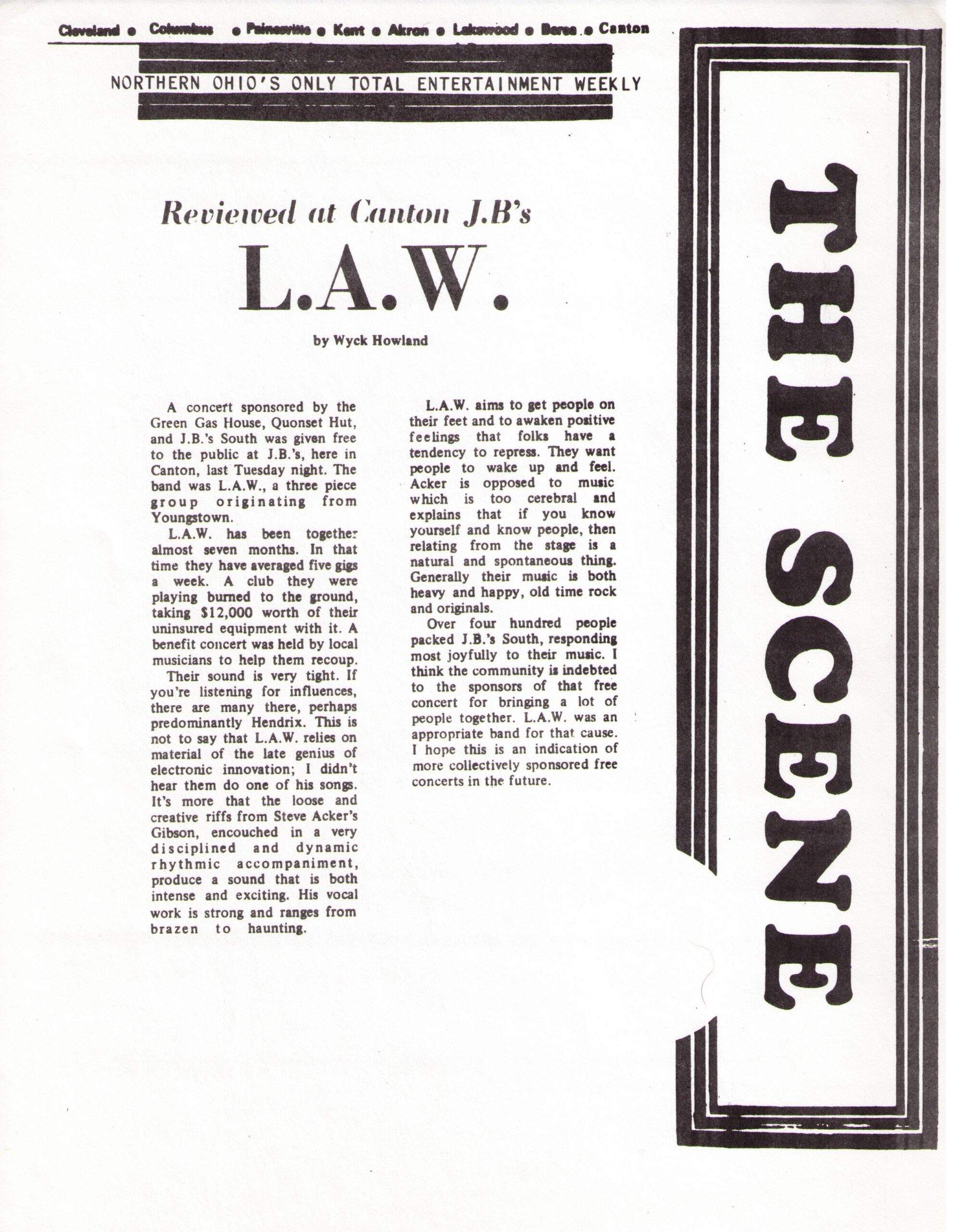
What led to a deal with MCA Records to record ‘Breakin’ It’ and what do you recall from the recording sessions?
LAW was playing that night at a Tampa, Florida disco. We were quite discouraged because our first album had just bombed completely. GRC had paid us a $35,000 signing bonus, we had recorded a good album, and we thought we were on our way to the big time.
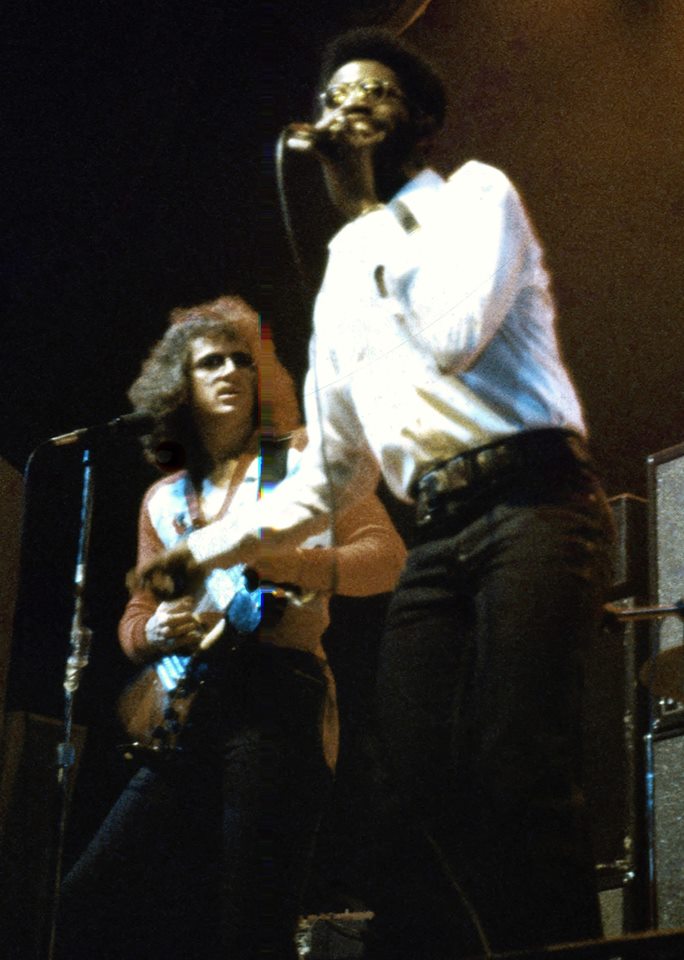
As Michael Thevis’ legal troubles mounted, his focus on GRC Records had waned. With the label’s distribution deals in disarray, our album was virtually invisible. That was the situation we faced as we prepared to play that disco of 1975. There we were in Tampa with no albums in its record shops, and no fans clamoring for our non-existent hits. I spoke that afternoon with my girlfriend in Atlanta, Kathy Sullivan. She was excited because our friend (and former roadie), Jack Williams, had been invited to Roger Daltrey’s suite at the Atlanta Hilton, and he had invited her to go with him. The Who was staying there for a week, flying out to various gigs in the Southeast and returning the same night to Atlanta. Jack knew how to hustle, and he had somehow insinuated himself into the Who’s inner circle, especially with Roger Daltrey himself. He was also an aspiring songwriter and had co-written one of the loveliest songs on the GRC album. Daltrey invited Jack to bring his tape to the hotel for a listen because he was planning to record a solo album at some point.
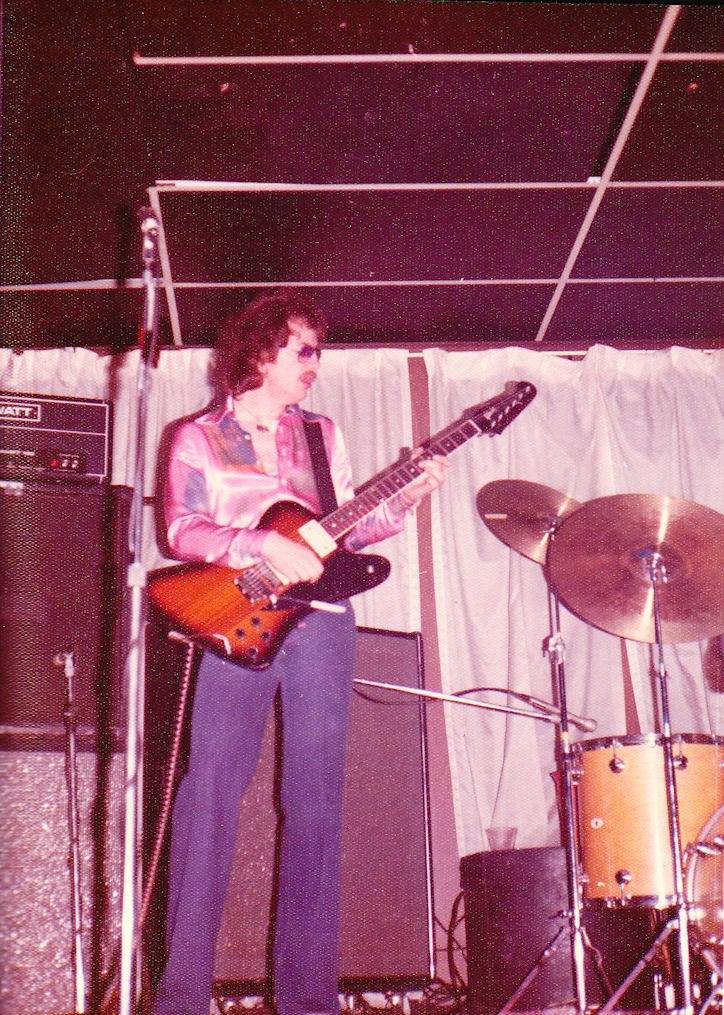
I told Kathy to enjoy herself and tell me all about it later. We played the gig that night and returned to our hotel. It was a miserable experience–a disco, complete with mirrored ball and flashing floor lights. Someone asked us to play ‘Do the Hustle’. Instead, we hustled our asses out of there as soon as we could. Back at the hotel, the phone rang in my room. It was Kathy and she was beside herself. “You’re never going to believe it!” she squealed, “you’re never going to believe it! Roger Daltrey heard your album and he wants to sign LAW to the Who’s production company.” You can imagine how incredible that sounded! The Who was at the top of their game in 1975. I had seen them perform once and it was the greatest concert I had ever witnessed (except for Jimi Hendrix). They were personal heroes of mine, and here their lead singer was talking about signing the band to a deal. We had done shows with quite a few national acts like Bob Segar, Alice Cooper, and many others. I was acquainted with many “stars.” But this was The Who! Hell, that very week, Roger Daltrey was on the cover of People Magazine! Somehow–I don’t recall the specific sequence of events–LAW’s manager, Gary LoConti, was put in touch the next day with the Who’s manager, Bill Curbishley (he still manages the Who to this day).
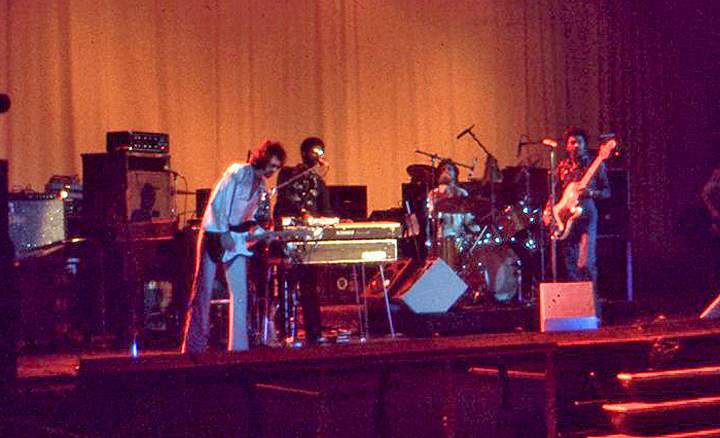
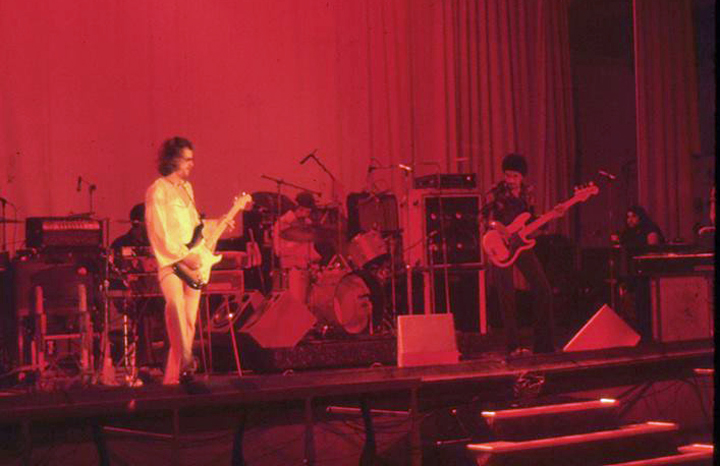
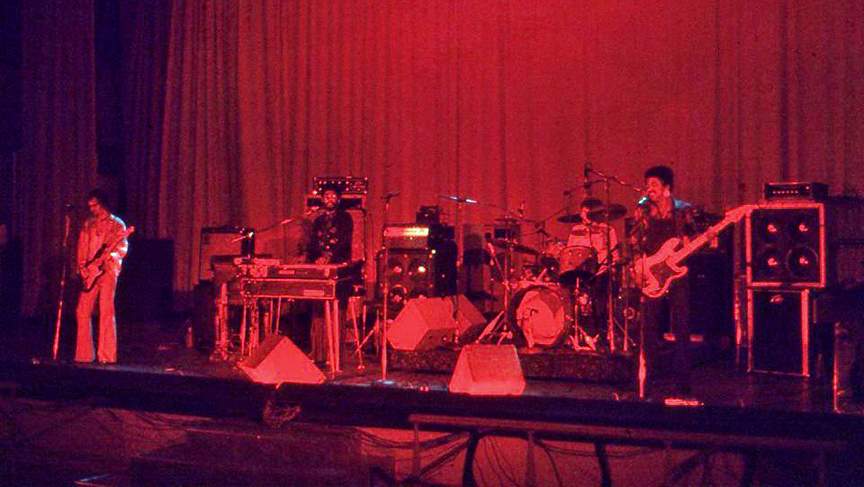
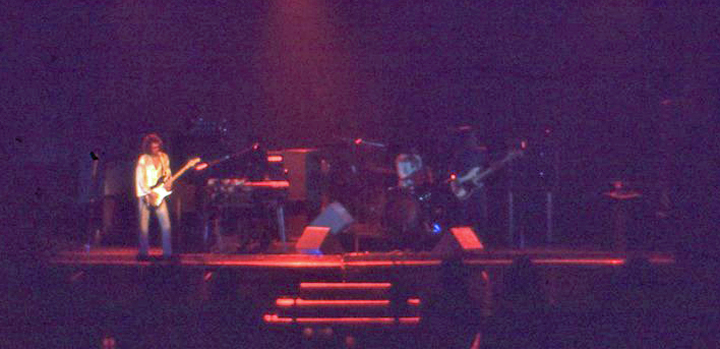
Our mood turned from despair that night to great hope in a matter of seconds. It was really quite unbelievable. But what happened in Daltrey’s suite is even more improbable and amazing. This is how it went down: Jack and Kathy went together to the Hilton. Kathy lingered in the lobby while Jack was admitted to Daltrey’s suite carrying a boombox with his songwriting demo cassette tape inserted and ready to go. He hit the play button, but instead of Jack’s demo, the music that poured out those boom-box speakers was the first track on our first album, ‘The Old Days Are Gone’. Jack had cued the tape to the wrong spot! He quickly stopped the tape, but Daltrey said, “Hold on there, I want to hear that.” After listening to the entire album, Daltrey called in both his manager and Pete Townshend to hear it, and they were, as Jack tells it, equally impressed. Daltrey did eventually hear Jack’s songs and signed him to his first publishing deal. But that night was LAW’s Big Moment. As I say, the sequence of events at that point has not been retained in my memory bank, but it is probable that I called Gary LoConti in Cleveland, who then called Bill Curbishly in Atlanta. Curbishley asked Gary if he and a representative of the band could meet him in two days in Chicago. As it happened, we had the next day off to travel from Tampa to Huntington, West Virginia for our next gig. It was decided that our bass player, John McIver, and I would fly to Chicago to meet up with Gary, Curbishly, and Daltrey. We met them in Curbishly’s suite the afternoon of our gig in Huntington. We had tickets to fly from O’Hare Airport to Charleston, W.V. and get to Huntington just in time for the gig.
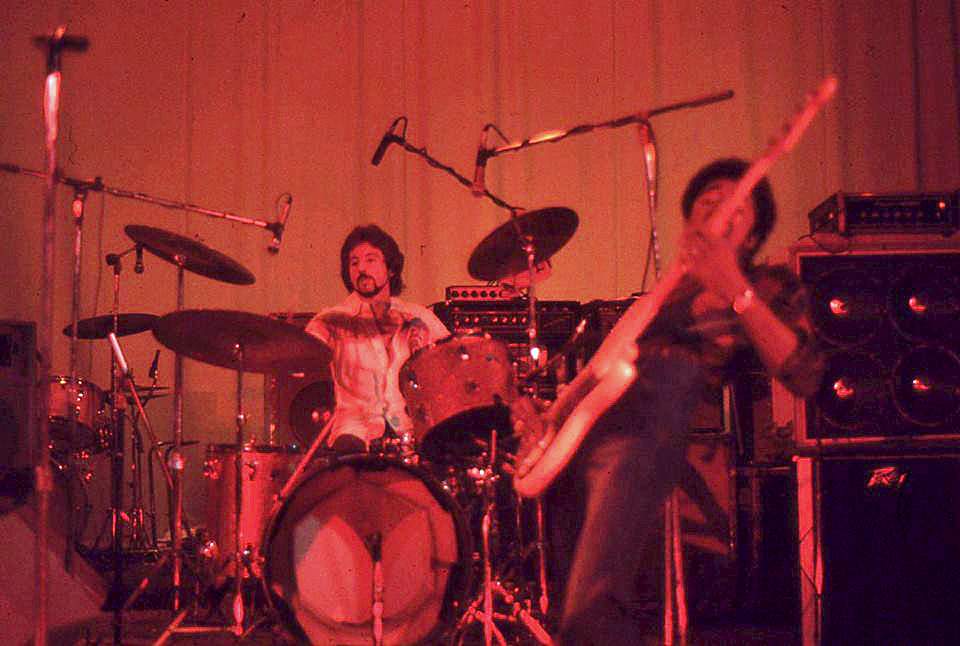
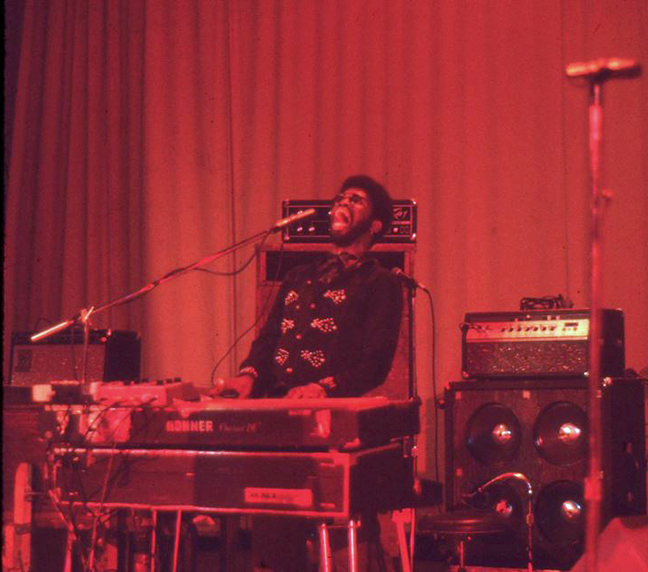
Daltrey and Curbishley couldn’t have been nicer. They liked the band a lot and wanted to see us perform live. So, they added us to their upcoming show in Cincinnati, December 6th, 1975 (this was the same arena where, a few years later, 11 people would be killed in a stampede at another Who concert). Cincinnati was not one of LAW’s strongholds. We’d played there a few times, but our closest real following was in Columbus. Fortunately, many of those followers attended the concert, and we felt like we were playing at home. Toots and the Maytals, a Jamaican reggae band, opened the show. They were not received well. In fact, they were booed. I was appalled. I thought they were great. Would they boo us, as well? They didn’t. In fact, we put on one of our most powerful shows. We had the entire arena standing and dancing by our last number. By Summer 1976, we recorded our first album for MCA, followed by a multi-city tour opening for The Who on the East Coast leg of their tour.
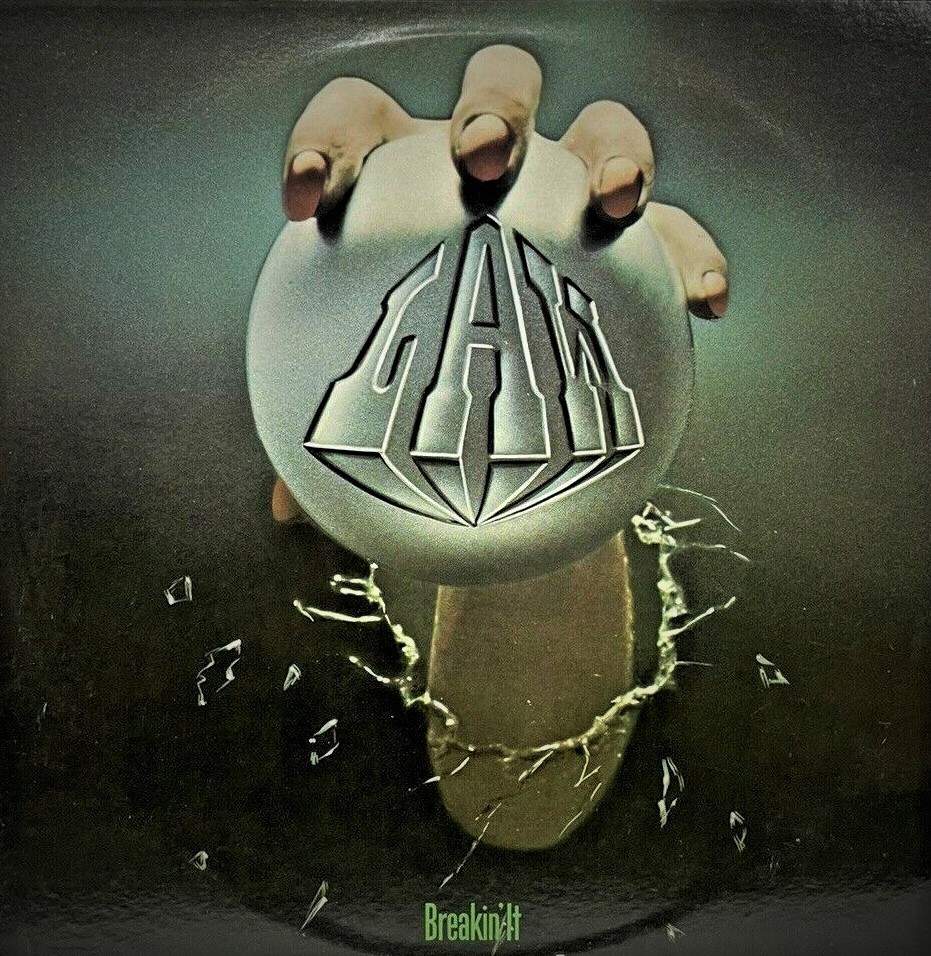
Did the band do any touring? What are some bands that you shared stages with?
A month after our first gig in January 1971, we got booked onto a show in Youngstown opening for Brownsville Station (‘Smoking in the Boys Room’). The promoter, Gary LoConti, offered to manage us that night. Gary’s family owned the legendary Agora clubs in Ohio. The Cleveland Agora was the most important showcase in the Midwest. We accepted the offer. Because of his connections with national booking agencies, especially Premier Talent and Frank Barcelona, Gary was able to get us booked as the opening act for virtually every major 70s band. Long before our first record deal we were playing stadiums and arenas. I once tried to count the world-famous band we played with and got as high as 350.It is much easier for me to list the 70s stars we did not play with than those we did, and the list is much shorter. A favorite show in my memory came at an outdoor festival in Ohio in June 1972 because we got to back up Chuck Berry. It was fantastic! One of the highlights of my life.
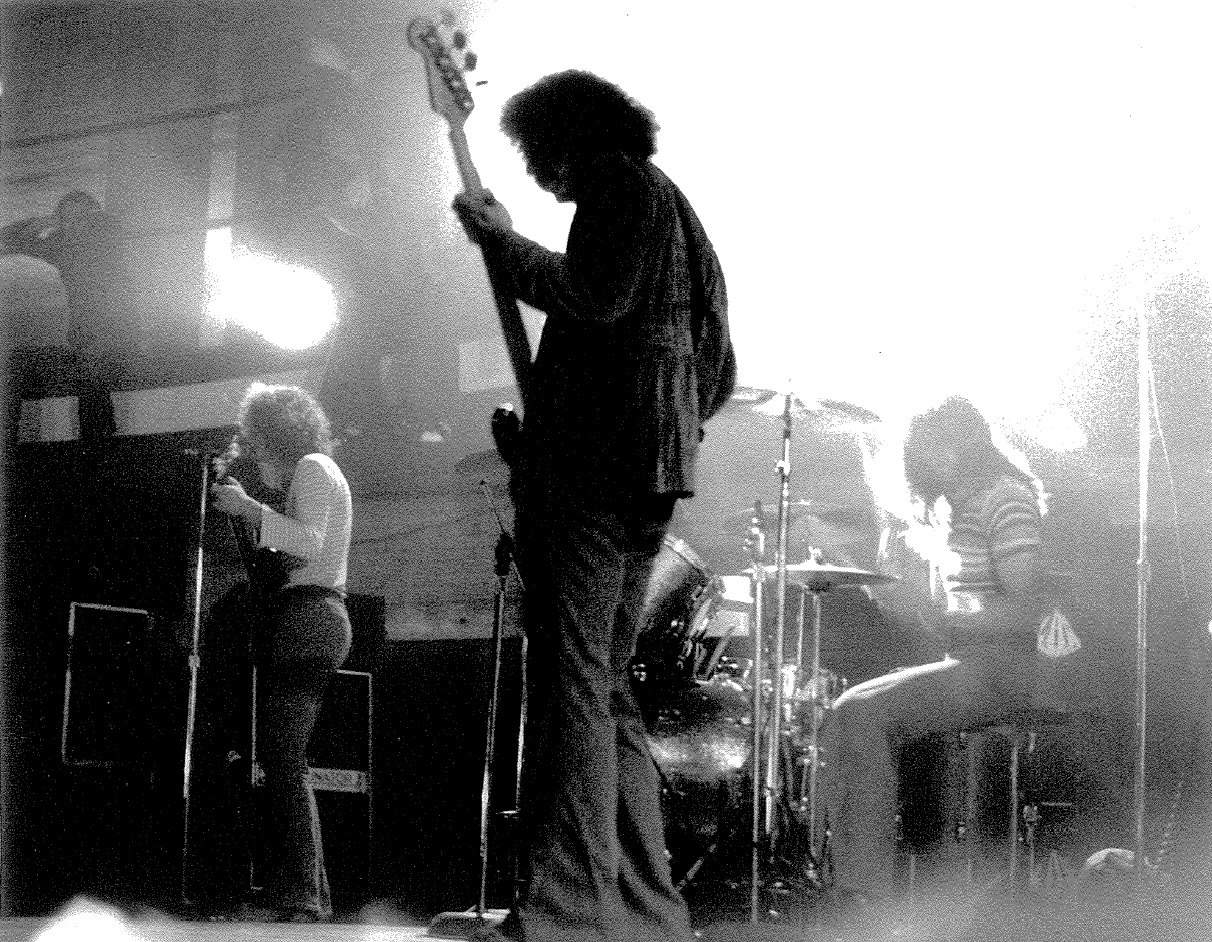
What about ‘Hold on To It’?
That album was our swan song. Again, our manager chose the producer, and he chose unwisely. Despite decades of credits, Jack Adams had become an alcoholic. He was inebriated during most of our sessions. We recorded at Agency Recording above the Cleveland Agora. It was a good studio, but Adams was just not up to the job. The album includes some great material, but it was poorly recorded and mixed. I wish I could get my hands on the original 2-inch master multi-track reels, but that ain’t ever gonna happen.
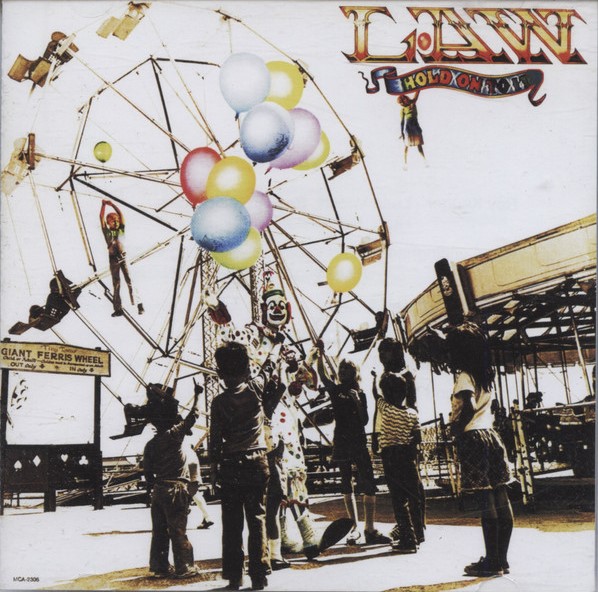
How come you decided to include elements of funk? At the beginning you were more hard rock oriented…
It was an unplanned evolution, borne of necessity. In December 1972, a month before our second anniversary, Mickey Williamson called a band meeting on the beach in Ft. Lauderdale. We thought he was going to tell us that Warner Brothers wanted to sign the band; instead, he quit the band because of a critical family situation in California to attend to. It was a devastating moment. I had become friends with Ronnie Lee Cunningham in Youngstown, and he had just left his band, Brainchild.
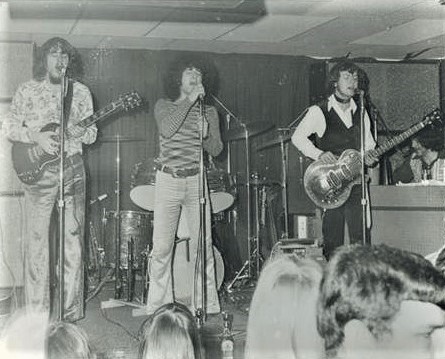
I called him immediately, and he agreed to fill the gap. Had he not been available, that would have been the end of the LAW story, right there.
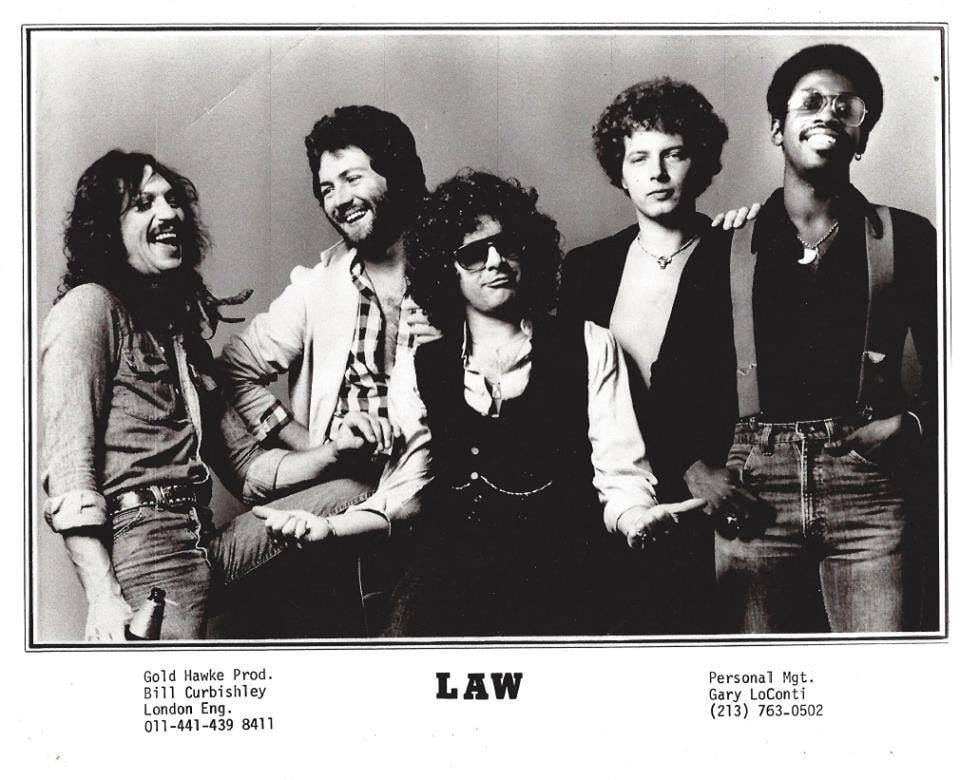
We changed the name to LAW (no periods) and carried on without missing a beat. By then, we were playing almost all the original material. We had developed quite a following in Atlanta. A friend introduced us to bass player John McIver, who showed up at Alex Cooley’s Electric Ballroom one night…and never left. We never actually asked him to join the band. He just never went away! John was a badass. So, now we are a hard-edged funk rock band. Throughout this evolution, we never lost the stadium rock energy that kept propelling us.
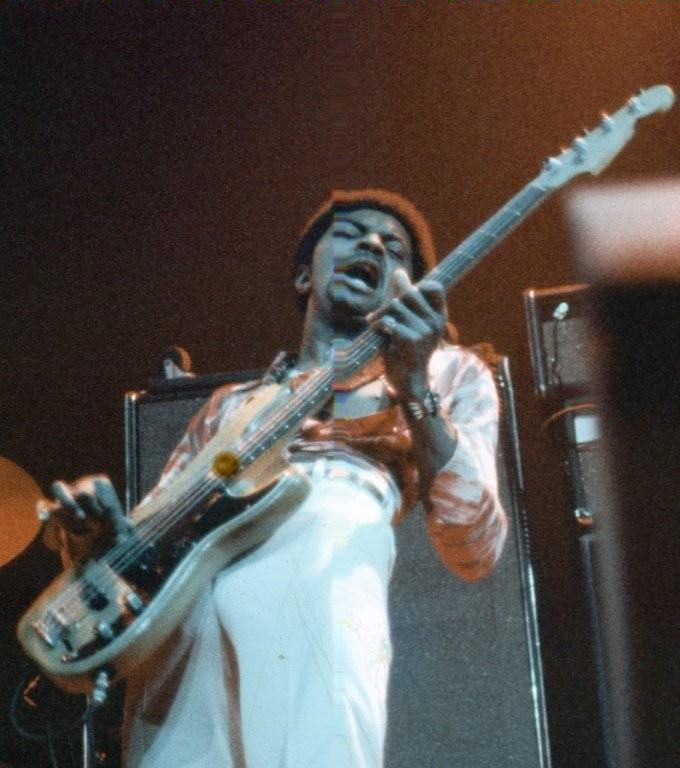
What led to the ending of the band?
By the time we finished recording our third album, ‘Hold on to It,’ in Cleveland in the Fall of ’77, I had become disenchanted with the band and our management. I felt that we had squandered our opportunity; I was not happy with other members’ work ethic, and I was not happy with the album. I quit the band in early December after playing with Golden Earring in St. Louis. That was our last show.
There’s quite a gap between this period and Sun King Rising, which I believe is your latest project. What occupied your life?
I moved to Jackson, Mississippi because that was where my family lived. My dad was Director of Southern Operations for General Motors. He ran two huge Packard Electric plants, where they manufactured wiring harnesses. As such, he was a VIP in the city, and that served to open many doors to me. I started producing regional bands and had a couple of big regional hits.
At the same time, I was writing an entertainment column for the local paper. My eulogy for John Lennon was selected personally by Yoko Ono for reprint in a book titled “A Tribute to John Lennon.” This all led to a career in advertising as an agency copywriter and creative director in 1982. Moving to Nashville in 1985, I started accumulating awards and accolades for my ad agency work. Eventually, I went solo, and I still work in that field today.
In August 2007, an old fan from my early days in LAW named John Hanti rediscovered me on a Yahoo discussion group about 1970s Youngstown bands (pre-Facebook and modern social media). He signed me to his recording/production studio in New York, SST Studios—a long-term development deal. Today, I serve as SST’s marketing director. Hanti and I are currently writing a book together based on his true stories in the business.
I have continued to write and produce music all along, and much of it is on my somewhat out-of-date YouTube channel.
In January 2020, a brilliant recording artist and longtime LAW fan who goes by the name of Sun King Rising signed me to produce his first album, ‘Delta Tales’. His record label released our second production, ‘Signs & Wonders,’ on October 1, 2022. It is now garnering rave reviews and airplay around the world, as are two music videos based on the singles, ‘No. 6 Magnolia Avenue‘ from ‘Signs & Wonders,’ and ‘Free Will in China Blue‘ from ‘Delta Tales’.
Klemen Breznikar
Steven Acker Official Website / Facebook / Twitter / YouTube

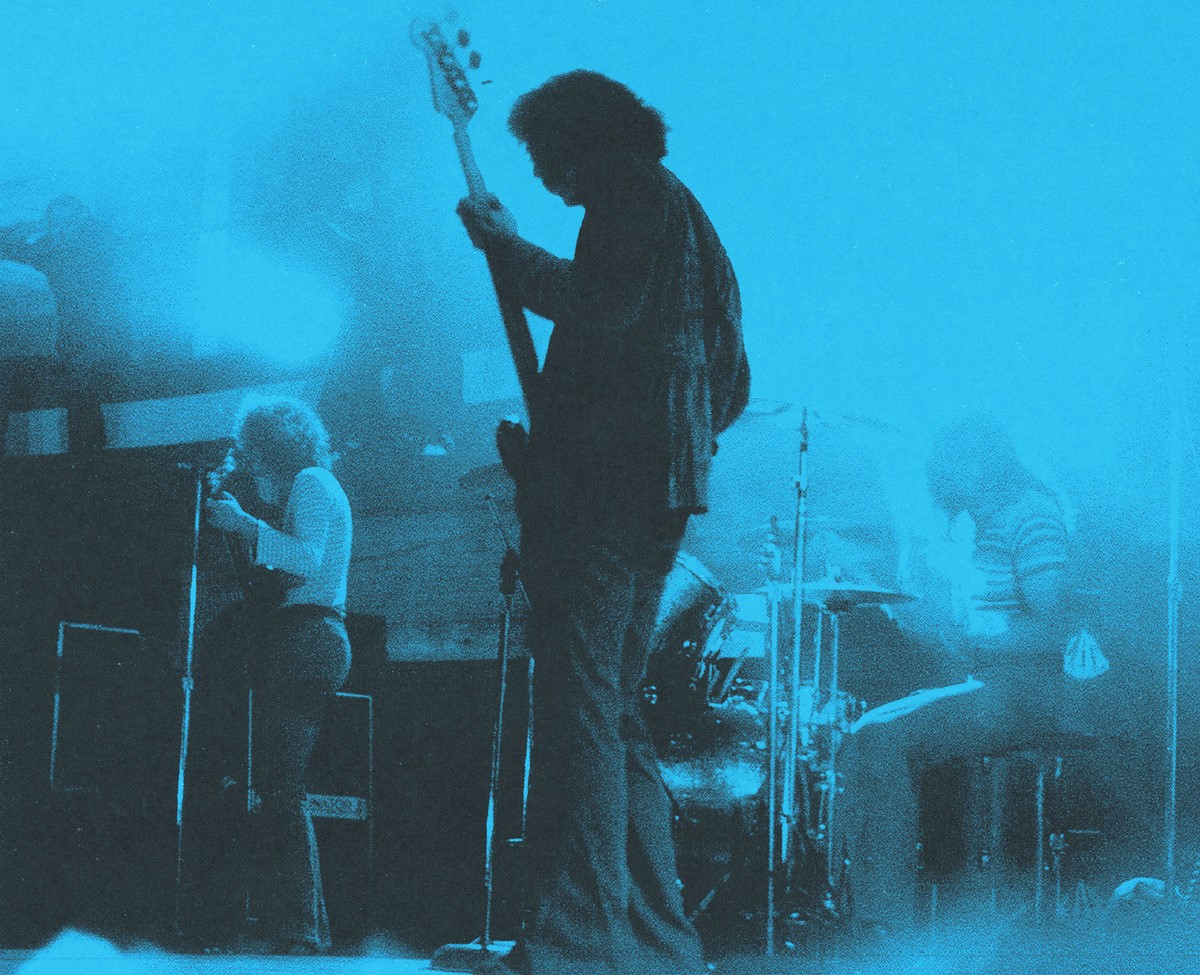
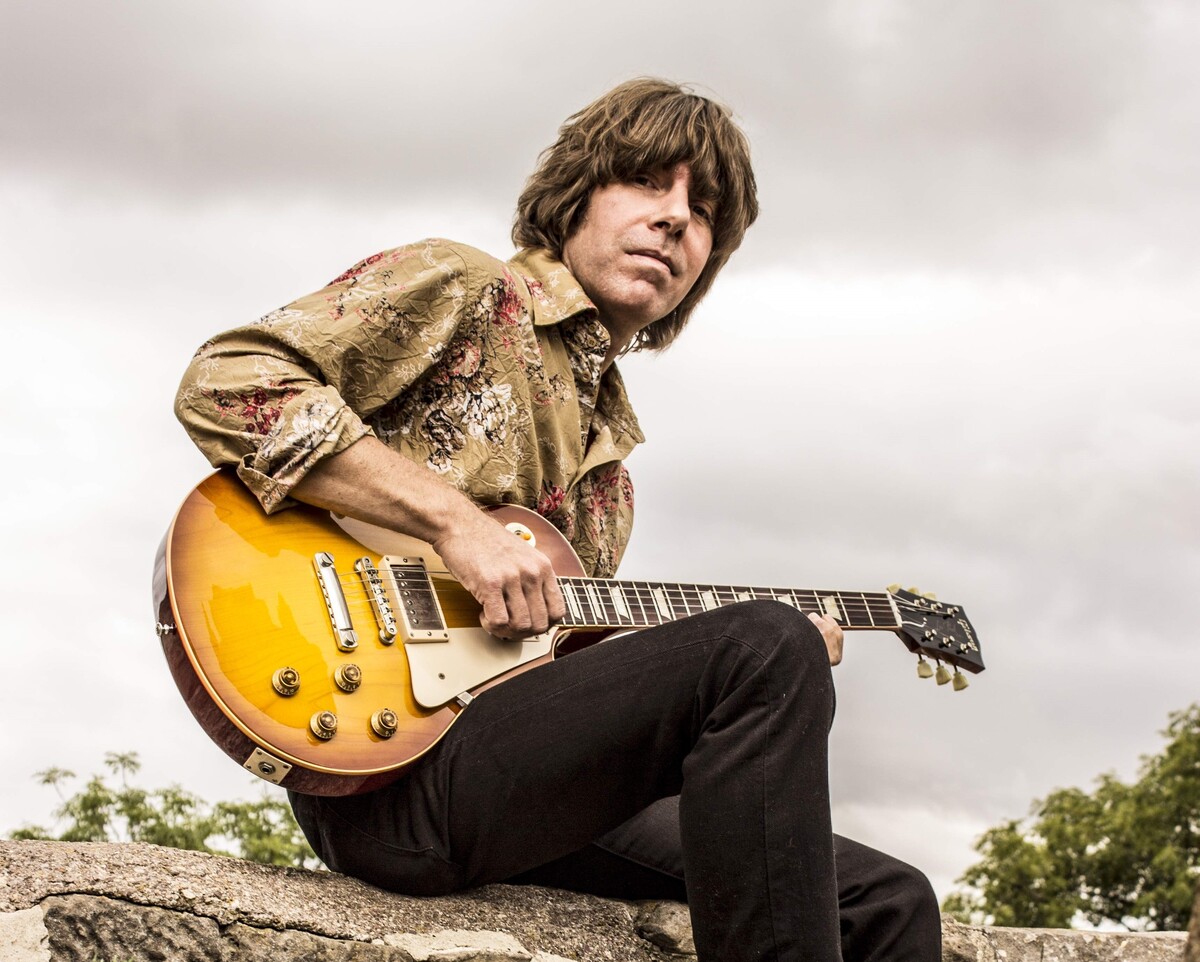

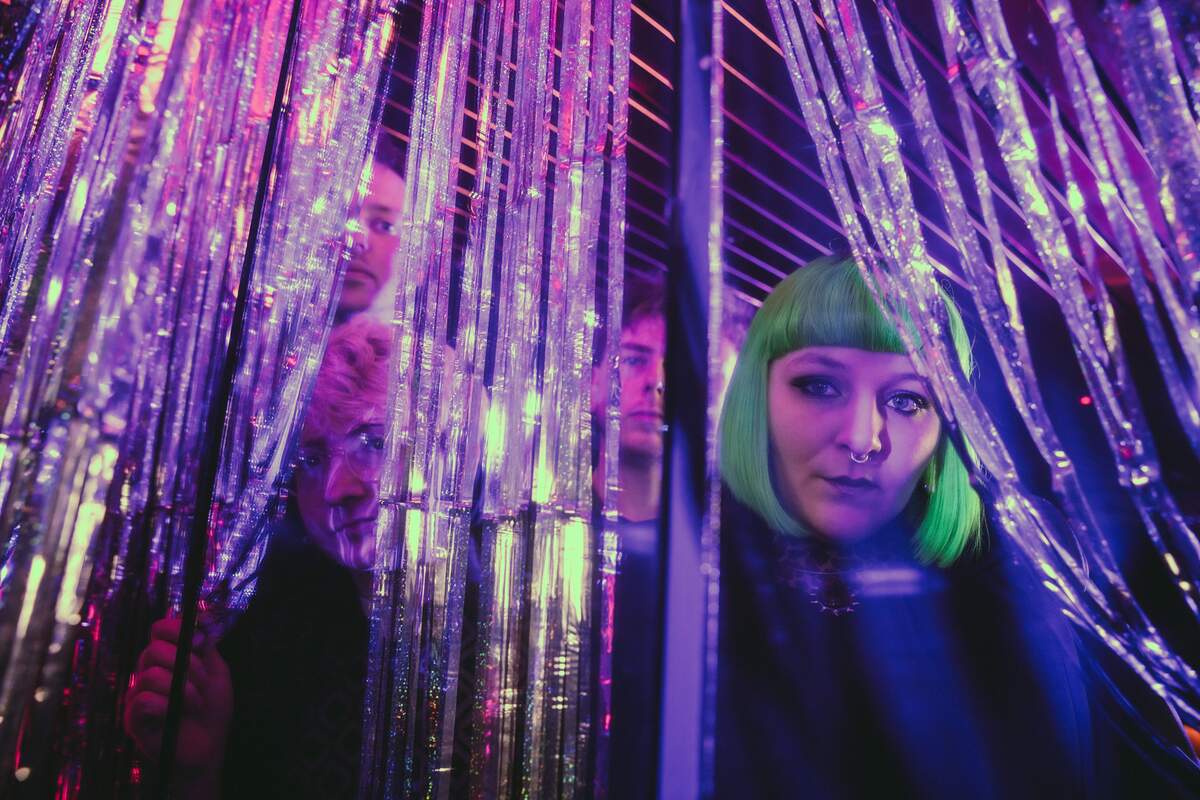
Steve moved up from Jackson Miss. in 2016 and lived with me for a year or so. I was a big fan of LAW even only having seen them 3 or 4 times. I liked their 1st record and played it quite often growing up and learning to play guitar after the Beatles came out. I had always Loved music and it wa funny that in my Jr. and High school years I played a lot of soul and funk music s well as Rock. So LAW was on my playlist for many years. I was thrilled to have Steve live with me as we played a few festivals,resturants,and made quite a lot playing at assisted living and nursing homes bringing joy and smiles to people that were about the same age as us. lol I will always cherish the times,fun,and lessons I learned from Steve. He would come to my gig’s and would get up and play and really enjoyed the Nudist colony gig.lol He also would take command at any jam or open mic we would play at with his Blues and great guitar leads and vocals.Sadly he passed Jan of 2025 and will be missed by all who had the pleasure of knowing him.R.I.P. Ace